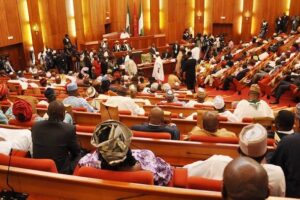
A British Virgin Islands (BVI) court has ruled that Ambrosie Orjiako, former chairman and co-founder of Seplat Energy Plc, fraudulently concealed assets in an effort to avoid repaying a $220.3 million debt owed to Access Bank.
The ruling, delivered by Justice Abbas Mithani of the BVI Commercial Division, follows years of cross-border litigation stemming from a syndicated loan default dating back to 2013.
Justice Mithani found that Orjiako constructed a complex network of offshore companies and share transfers to move valuable holdings in Seplat out of the reach of Access Bank and other creditors.
Read also: Abuja lawyer banned from legal practice for 5 years over N29 million fraud
“In this case, the sequence of events clearly demonstrates a deliberate, systematic and fraudulent attempt to put the shares beyond the reach of the claimant and Orjiako’s other creditors,” the judge stated in the October 1 judgment.
Access Bank’s claim, filed in April 2024, sought to enforce an earlier judgment secured against Orjiako at the High Court in England in March 2016. The BVI court had issued a consent order in April 2024 allowing the lender to proceed with enforcement.
The case stems from a 2011 syndicated loan extended by Afrexim Bank, Diamond Bank (now merged with Access Bank), and Skye Bank (now Polaris Bank) to Shebah Exploration & Petroleum Co. Ltd., a company controlled by Orjiako. Shebah later defaulted on the facility in March 2013.
According to court documents, Orjiako personally guaranteed the loan, which the lenders demanded to be repaid in full in September 2013. When repayment was not made, the banks also invoked a corporate guarantee from Allenne Limited, another BVI-registered entity.
Although the matter was initially settled in 2014 under agreed repayment terms, Orjiako breached the settlement, prompting the lenders to resume legal action. The English High Court later issued a summary judgment against him in 2016.
Justice Mithani noted that by 2013, Orjiako must have known he had “no reasonable prospect” of meeting his guarantee obligations and subsequently began moving assets to avoid repayment.
Read also: Kano files fresh legal action against Ganduje over alleged fraudulent part ownership of Dala Inland Dry Port
Web of Offshore Transfers
The judgment detailed a series of complex share transfers across multiple BVI-registered companies, including Shebah Petroleum Development Company Ltd, Abbeycourt Energy Services, Neville Investment Management, Plumage Management, Pursley Resources, Sinclair Commercial, Salvic Energy, and Salvic Petroleum Resources.
Access Bank argued that these companies were shell entities used to conceal substantial holdings in Seplat, with Orjiako as the ultimate beneficial owner.
Court records show that share transfers to his wife, Mrs Igra Orjiako, began in 2014, shortly after legal threats from the banks. The judge ruled that these transfers lacked commercial justification and were intended to shield assets from creditors.
By 2017, Orjiako appeared to own most of the shares in the entities that indirectly controlled Shebah BVI, which itself held valuable Seplat shares. However, Justice Mithani determined that Orjiako maintained control through directorships and beneficial ownership.
Access Bank asserted that the transfers were fraudulent manoeuvres designed to mislead creditors into believing that Orjiako had divested from the companies when, in fact, he retained control.
Read also: EFCC arraigns Ngozi Olejeme, ex-NSITF Chair, over alleged N1bn fraud
Concealment of Seplat Holdings
Evidence before the court showed that Orjiako continued to exercise influence over Seplat through Shebah BVI and its subsidiaries. Seplat filings confirmed that Shebah BVI held over 30.6 million shares and Pursley 900,000 shares, both described as proxies for Orjiako’s interest.
The court found that Orjiako used the transferred shares as collateral to raise funds, some of which were used to repay parts of his debt and finance Shebah’s operations.
In his defence, Orjiako claimed the shares belonged to his wife as part of an estate planning arrangement dating back to 2010. However, Justice Mithani rejected this claim, noting that evidence of such ownership only emerged after legal actions were initiated.
“The plain fact is that as soon as Orjiako realised he could not repay the loan, he sought to put his assets beyond the reach of his creditors,” Justice Mithani ruled.
He further stated that Orjiako’s strategy was to complicate proceedings with excessive documentation, hoping to delay enforcement and frustrate Access Bank’s recovery efforts.
Read also: Court sets Dec. 8 for trial of Nicholas Mutu in alleged ₦320m NDDC fraud
Final Ruling
Justice Mithani concluded that Access Bank had successfully proven fraudulent intent, describing Orjiako’s actions as “an intentional, systematic and fraudulent effort” to conceal assets.
He declared Orjiako the sole beneficial owner of the companies involved, including Salvic Energy and Salvic Petroleum BVI, effectively overturning the purported transfers to his wife.




